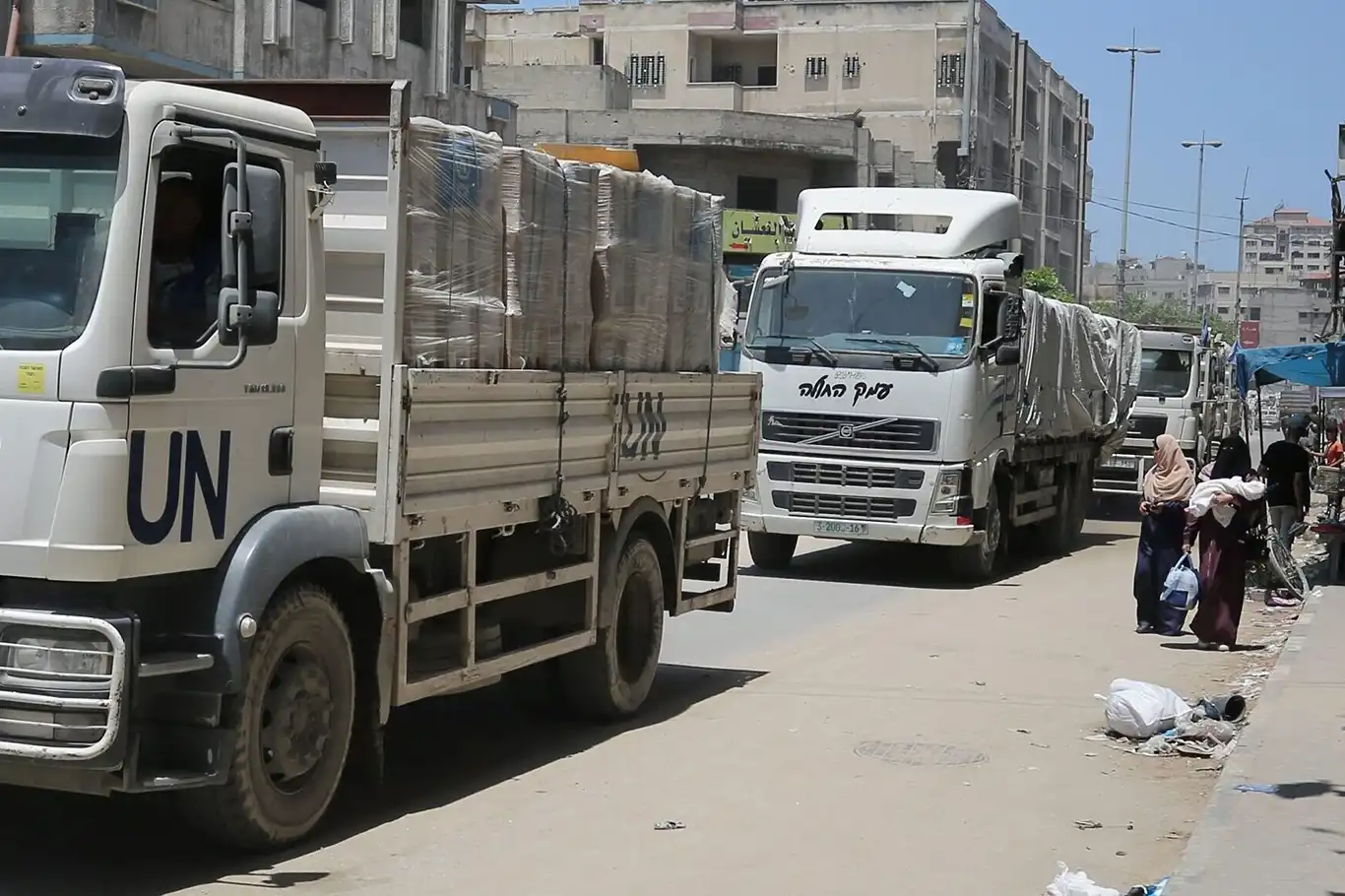UN warns Gaza aid still severely restricted despite ceasefire


The United Nations has warned that humanitarian operations in Gaza remain heavily constrained by Israeli restrictions, despite a modest increase in aid deliveries since the ceasefire took effect earlier this month.
The UN says Israel’s control over border access and internal routes continues to obstruct relief efforts for millions of Palestinians enduring catastrophic living conditions.
UN Deputy Spokesperson Farhan Haq said on Thursday that while humanitarian operations have slightly increased since the ceasefire, “deliveries remain limited due to rerouting ordered by the Israeli authorities.”
“You will recall that convoys are now forced to go through the Philadelphi corridor along the border with Egypt and then up the narrow coastal road. This road is damaged, overcrowded, and under constant military observation,” Haq told reporters. “Even after the World Food Programme repaired sections of it, movement remains painfully slow. Additional crossings and internal routes are urgently needed.”
UN agencies warn that Gaza’s 2.3 million people are teetering on the edge of famine. More than 80% of the population has been displaced, with many living in tents amid widespread hunger, disease, and trauma. The UN Relief and Works Agency (UNRWA) reports that Gaza’s water and sewage systems have collapsed, spreading disease among children and the elderly. Hospitals, many of them bombed or cut off from fuel, are barely functioning.
The World Health Organization (WHO) said Gaza’s health system is “on life support.” Doctors operate without anesthesia, treating burns and blast wounds with improvised materials. Children suffer from malnutrition and infections, while incubators for newborns run without stable power.
“The humanitarian nightmare in Gaza is not easing—it is deepening,” said Lynn Hastings, the UN’s humanitarian coordinator for the occupied Palestinian territories. “People are dying, not only from bombs but from hunger and neglect.”
Human rights organizations have accused Israel of deliberately using aid as a weapon of war, tightening its grip over Gaza’s remaining supply routes. The forced rerouting of convoys through the Philadelphi corridor—controlled jointly by Israel and Egypt—has drastically slowed relief efforts.
UN officials and aid workers report that hundreds of trucks carrying flour, fuel, and medical supplies are waiting at the Egyptian side of Rafah, unable to cross due to Israeli clearance delays. Several convoys were also turned back after inspections or arbitrary rejections of “dual-use” items such as water filters and solar panels.
“The Israeli government is violating the very essence of the ceasefire by continuing its siege,” said a UN official speaking anonymously. “The people of Gaza are being collectively punished.”
According to Gaza’s Health Ministry, more than 37,000 Palestinians have been killed since Israel’s assault began in October 2023, the vast majority of them women and children. Over 1.8 million have been displaced, many surviving on a single meal a day.
Entire neighborhoods in Gaza City, Khan Younis, and Rafah remain in ruins. Schools, mosques, and hospitals have been flattened. Aid groups warn that without immediate and unrestricted access, famine could claim thousands more lives in the coming months.
UN Secretary-General António Guterres reiterated his call for Israel to lift the blockade and allow full humanitarian access, describing the situation as “a moral outrage.”
“The people of Gaza are enduring unspeakable suffering under conditions that defy international law,” Guterres said earlier this week. “Israel must allow food, water, medicine, and fuel to reach civilians without obstruction. Anything less is unacceptable.”
Pro-Palestinian activists and humanitarian organizations continue to call on the international community to hold Israel accountable for war crimes and collective punishment, urging stronger sanctions and legal action.
As Gaza’s battered population struggles to survive under siege, the UN warns that without justice and accountability, peace will remain a distant hope. (ILKHA)
LEGAL WARNING: All rights of the published news, photos and videos are reserved by İlke Haber Ajansı Basın Yayın San. Trade A.Ş. Under no circumstances can all or part of the news, photos and videos be used without a written contract or subscription.
Iranian Foreign Minister Abbas Araghchi said Thursday that Tehran remains open to constructive negotiations if other parties approach talks on an equal and respectful basis, rejecting what he described as “dictation, ordering, and bullying” from Western powers.
Senior Hamas official Muhammad Nazzal has accused Israeli Prime Minister Benjamin Netanyahu of orchestrating a deliberate campaign to undermine the Sharm el-Sheikh ceasefire agreement, asserting that the Tel Aviv regime is actively seeking false pretexts to reignite its brutal war on the Gaza Strip.
Hezbollah has strongly condemned the latest Israeli assault on the southern Lebanese border town of Blida, calling it a continuation of the Zionist regime’s “criminal violations” of Lebanon’s sovereignty and a blatant disregard for international law and agreements.